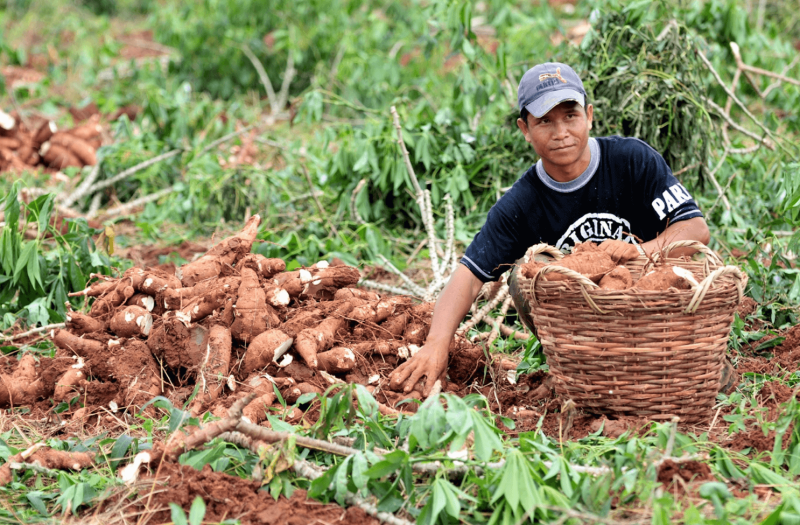For breeders of cassava, a staple food for hundreds of millions in the tropics, producing improved varieties has been getting harder over time. A team at Cornell used genomic analysis of cassava varieties and wild relatives to make a diagnosis: Mutations have corroded the genome, producing many dysfunctional versions of genes and putting at risk a crop crucial to the survival of one-tenth of the world’s population.
“The analysis was cleanly able to show that cassava is genetically decaying,” said Ed Buckler, a research geneticist at the U.S. Department of Agriculture-Agricultural Research Service and adjunct professor of plant breeding and genetics…. “It’s getting worse through time as it picks up more and more mutations, so when breeders do make crosses they’re having to put more and more effort into finding the few offspring that contain at least one functional version of each gene.”
…
The findings are already being incorporated into the breeding models of the Cornell-based NextGeneration Cassava Breeding project….
“In the long run, using genome editing, we could provide the equivalent of personalized medicine to breeding lines,” Buckler said. “Essentially these mutations are like disease mutations in humans. And we’re getting to the point where we can identify those deleterious mutations and correct them.”
[Read the full study here.]
The GLP aggregated and excerpted this blog/article to reflect the diversity of news, opinion, and analysis. Read full, original post: Cassava is genetically decaying, putting staple crop at risk
For more background on the Genetic Literacy Project, read GLP on Wikipedia































